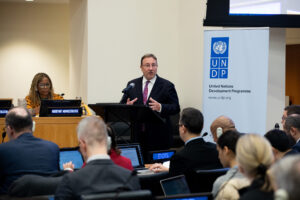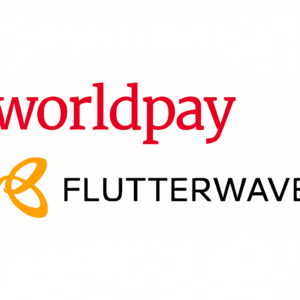If you’ve landed on this page, chances are you’re struggling to accept international payments or looking to streamline your sales process. Either way, the good news is that payment acceptance for Nigerians is improving, thanks to the rise of fintechs, particularly Flutterwave.
You’ve likely heard the clichés—things like scammers (a.k.a. “Yahoo boys”) or the poor state of our banking system being blamed for why International Money Transfer Operators (IMTOs) placed an embargo on Nigerians. While these clichés may have contributed to the situation, they don’t tell the whole story.
This article will show you how to improve payment acceptance in Nigeria, with the bonus of greater convenience. But before we dive in, let’s take a look at how payment limitations impact your business.
Dangers of Payment Limitations
Online payments have always been a bone of contention in business. Sometimes, cross-border payments take days or even weeks to reflect in a merchant’s account due to delays in payment gateways.
You may find it hard to believe, but since 2024, over 3,000,000 Nigerian Naira have been lost in thin air, and neither the PSP nor the NIBSS has taken responsibility for the funds.
Don’t take my words for it.
In June 2024, Bayo, a Germany-based Nigerian, attempted to send €1,500 through Tranzfar, a cross-border payment platform. But six months later, the money had neither reached the recipient in Nigeria nor been refunded.
Despite multiple emails and escalations, the sender received vague responses, such as “we’re working on it.”
In one reply, Tranzfar attributed the issue to downtime at NIBSS (Nigeria Inter-Bank Settlement System), a key infrastructure layer for processing local transfers.
The sender complained bitterly due to pressure from the receiver’s side, which affected his reputation.
Like Bayo, when this happens, it’s not just about losing a sale. These issues can affect your brand’s reputation and create a frustrating experience for your customers.
Aside from brand reputation, you risk losing or alienating customers.
In cases such as
- Cards get declined without explanation: International customers can’t pay you because your platform doesn’t support their card network, or your card gets rejected when trying to pay for tools or ads.
- Bank transfers don’t go through: Even when you share your bank details, transfers fail due to FX issues or inconsistent bank APIs. Sometimes the transfer sits for days before bouncing back.
- Local payment methods aren’t supported: International buyers hesitate when they don’t see trusted options like PayPal.
How Worldpay Solves Payment Acceptance Challenges in Nigeria
First, let’s quickly revisit the idea of payment gateways. Payment gateways are platforms that allow businesses to process payments, whether they’re online or in-store. Think of them as intermediaries between customers, banks, and businesses that ensure transactions happen smoothly, securely, and efficiently.
Now, Flutterwave is already a popular payment processor in Nigeria and across Africa. It allows businesses to accept payments through various channels like cards, USSD, bank transfers, and more. It’s already well-established as a fintech player in Africa, and Worldpay, a global payment processor owned by FIS, is one of the biggest players in the world for handling payments.
The Partnership: What Is It Really About?
The partnership between Flutterwave and Worldpay essentially gives Nigerian businesses access to global payment infrastructure while making sure they still have access to local payment methods.
Here’s what that means in practice for Nigeria:
1. Access to International Markets:
- Nigerian businesses can accept global payments, which is a huge benefit.
- For example, if you’re selling products in Nigeria but want to sell to a customer in the U.S. or Europe, they can pay you easily using Visa, Mastercard, and other international payment methods.
- Platforms like GeePay or PayPal can also facilitate international payments, but Flutterwave’s integration with Worldpay makes the process smoother for businesses based in Nigeria.
- Key Difference: Worldpay is one of the biggest global payment processors, and by teaming up with Flutterwave, Nigerian businesses can now connect to Worldpay’s huge network without facing the same complexities that might exist with other platforms like PayPal.
2. Streamlined Payment Processing:
- Traditional payment methods in Nigeria (and Africa in general) can often be tricky, requiring businesses to juggle multiple payment processors for local and international payments.
- With Flutterwave and Worldpay, this process is unified.
- Businesses can now manage all payment types (Visa, Mastercard, local options like USSD, mobile money, bank transfers, etc.) in one place.
- Why This Is Unique:
- In other platforms like Stripe, a business might have to use separate systems for local and international payments.
- With Flutterwave, Nigerian businesses don’t need multiple third-party services to process local and international payments. Everything is handled in one streamlined system.
3. The Ability to Accept Local Payment Methods:
- The local payment methods (like bank transfers, USSD codes, and even eNaira, Nigeria’s digital currency) are essential for a large portion of Nigeria’s population. Many customers in Nigeria don’t have access to international cards (like Visa or Mastercard), but they can still make payments via mobile money or bank transfers.
- Flutterwave allows businesses to accept these local payments while also processing international card payments from places like the U.S., Europe, or Asia.
- Why This Matters:
- Other global platforms like PayPal or Stripe don’t have as strong a foothold in accepting local Nigerian payment methods, especially things like USSD (which is hugely popular in Nigeria for mobile payments).
4. Enhanced Fraud Protection and Security:
- Security is a big concern when it comes to digital payments. Worldpay brings its robust fraud detection and security features to the table. This helps ensure that both Nigerian businesses and their customers are safe from payment fraud.
- Worldpay has industry-leading security measures that help prevent fraudulent transactions.
- Flutterwave integrates these tools into its platform, making Nigerian businesses more secure when accepting payments from local or international customers.
5. Unlocking Cross-Border Commerce:
- One of the unique benefits is how this partnership opens up opportunities for cross-border commerce. Businesses in Nigeria can now not only sell to Nigerian consumers but also engage in international trade.
- For example, a Nigerian business can now easily sell to someone in the U.S., Europe, or Asia without worrying about how to process payments from those regions.
- Global Scalability: This is something Geepay and Stripe also do, but the Flutterwave and Worldpay integration is designed to cater specifically to the Nigerian market, which helps businesses scale faster and more efficiently.
6. Better Customer Insights and Analytics:
- Comprehensive Analytics: The integration of Worldpay’s payment infrastructure into Flutterwave’s platform offers Nigerian businesses access to detailed payment analytics. This helps them better understand their customers’ buying behavior and improve decision-making.
- Data-Driven Growth: SMEs can leverage this data to adjust their business strategies, enhance customer retention, and optimize sales, both locally and internationally.
Benefits for Global Merchants:
-
Access to the African Market:
- Increased Market Reach in Africa: Global merchants looking to expand into Africa can now access Nigerian consumers through a payment platform that supports both local payment methods (like USSD and mobile money) and international payment options (like Visa and Mastercard).
- Ease of Market Entry: The Flutterwave and Worldpay partnership helps global merchants overcome the challenge of managing payments in different currencies and across different regions in Africa, including Nigeria.
-
Seamless Cross-Border Transactions:
- Support for Multiple Currencies: Worldpay’s infrastructure, combined with Flutterwave’s local expertise, allows global merchants to accept payments in multiple currencies, including the Nigerian Naira (NGN), without worrying about exchange rate fluctuations or complex payment processing setups.
- Localized Payment Options: International merchants can now accept local Nigerian payment methods, which enhances customer experience and reduces friction in the payment process.
-
Enhanced Fraud Prevention for International Transactions:
- Worldpay’s Fraud Prevention Tools: With the added benefit of Worldpay’s industry-leading fraud detection and security protocols, global merchants are better equipped to manage the risks associated with accepting payments from customers in Nigeria and across other African countries.
- Secure International Payments: Worldpay ensures that international transactions are secure, helping global merchants mitigate the risks of fraud and chargebacks, which is critical when dealing with cross-border payments.
-
Better Conversion Rates:
- Local Payment Options Improve Conversion: For global merchants selling to African customers, the ability to accept local payment methods (like USSD, bank transfers, and eNaira) can significantly improve conversion rates, especially in regions where credit card usage is low.
- Localized Checkout Experience: By offering payment methods that African customers are familiar with, global merchants can reduce cart abandonment and improve customer satisfaction.
-
Simplified Compliance and Regulations:
- Navigating African Market Regulations: The partnership simplifies compliance for global merchants when accepting payments in African markets, especially in countries like Nigeria. The regulatory landscape in Africa can often be challenging, but the Flutterwave and Worldpay integration ensures that businesses can meet local regulatory requirements for cross-border payments.
How to Get Started with Worldpay
Strictly for Worldpay Merchants
Setting up payments for Nigerian customers doesn’t need to be a technical nightmare. Worldpay’s integration with Flutterwave enables international merchants to easily accept local Nigerian cards and payment methods without the need to rebuild their checkout experience from scratch.
How to Set Up as a Global Merchant
If you’re a foreign merchant looking to accept Nigerian payments:
- Sign Up with Worldpay
- Go to Worldpay’s website
- Request a demo or speak to sales
- Clarify that you want to accept payments from Nigeria
- Integrate Worldpay with Your Checkout
- Works with Shopify, WooCommerce, Magento, or custom APIs
- Choose hosted checkout or direct API
- Activate Flutterwave Routing
- Ask your Worldpay account rep to enable Flutterwave as your local acquiring partner.
- This unlocks access to local Nigerian payment methods, including Verve, USSD, and bank transfers.
- Pricing
- Varies by transaction volume and geography
- Routing through Flutterwave may help reduce cross-border fees
- Settlement is faster, with optional Naira payouts
How to Accept Global Payments with Flutterwave
There are multiple ways to accept payments via your dashboard; ensure that anyone you choose matches your business needs.
- Create a Flutterwave Business Account (Suitable for SMEs and Entrepreneurs)
- Sign up and complete verification.
- Upload either of the required documents (CAC docs or ID) and link your bank.
- Enable Global Payment Methods
- In your dashboard, click settings.
- Select Business Preference
- Navigate to the payment method
- Select “request access” to get access to the international card payment method.
- The Flutterwave team will review your account and provide feedback within 48 hours. In some cases, your request may be denied if you fail to meet the requirements.
- If approved, use Flutterwave Checkout or Payment Links.
- Share with global customers to pay in their currency.
Why It Matters in Africa’s Growing Online Market
Africa’s Growing Online Market: Africa, particularly Nigeria, is emerging as an exciting frontier for global e-commerce. Here’s why:
- Nigeria Is Africa’s Largest Economy. Nigeria leads the continent in GDP and consumer spending, making it a lucrative destination for international merchants and investors.
- Rapid Mobile Internet Growth Over 100 million Nigerians have internet access—most through smartphones. This means a huge addressable market actively shopping online.
- Young, Digitally Native Population: Nigeria has one of the youngest populations in the world. A tech-savvy, mobile-first generation is fueling online purchases like never before.
- SMEs are increasingly working internationally. 61% report increased cross-border activity compared to 2021; 65% plan to source more globally. Speed and reliability in payments are their top concerns.
FAQs
Q: Is Worldpay Legit?
Ans: Yes. Worldpay is one of the world’s largest global payment providers, processing billions of transactions annually for top brands across industries.
Q: How Do I Receive Money Made Through Worldpay Link?
Ans: Through the Flutterwave–Worldpay partnership, when a global customer pays you through a Worldpay link connected to Flutterwave’s system, the money is processed by Flutterwave and lands in your Flutterwave balance. From there, you simply log in to your Flutterwave dashboard and withdraw funds to your Nigerian bank account in NGN or USD.
This setup means you don’t have to open a Worldpay account abroad. Flutterwave handles international transactions for you and provides a straightforward way to receive payments in Nigeria.
Q: Is Worldpay the Same as PayPal?
Ans: No. While both offer international payment services, Worldpay is a dedicated merchant acquiring and processing solution, ideal for e-commerce brands and enterprises. PayPal focuses more on peer-to-peer payments and small business solutions








